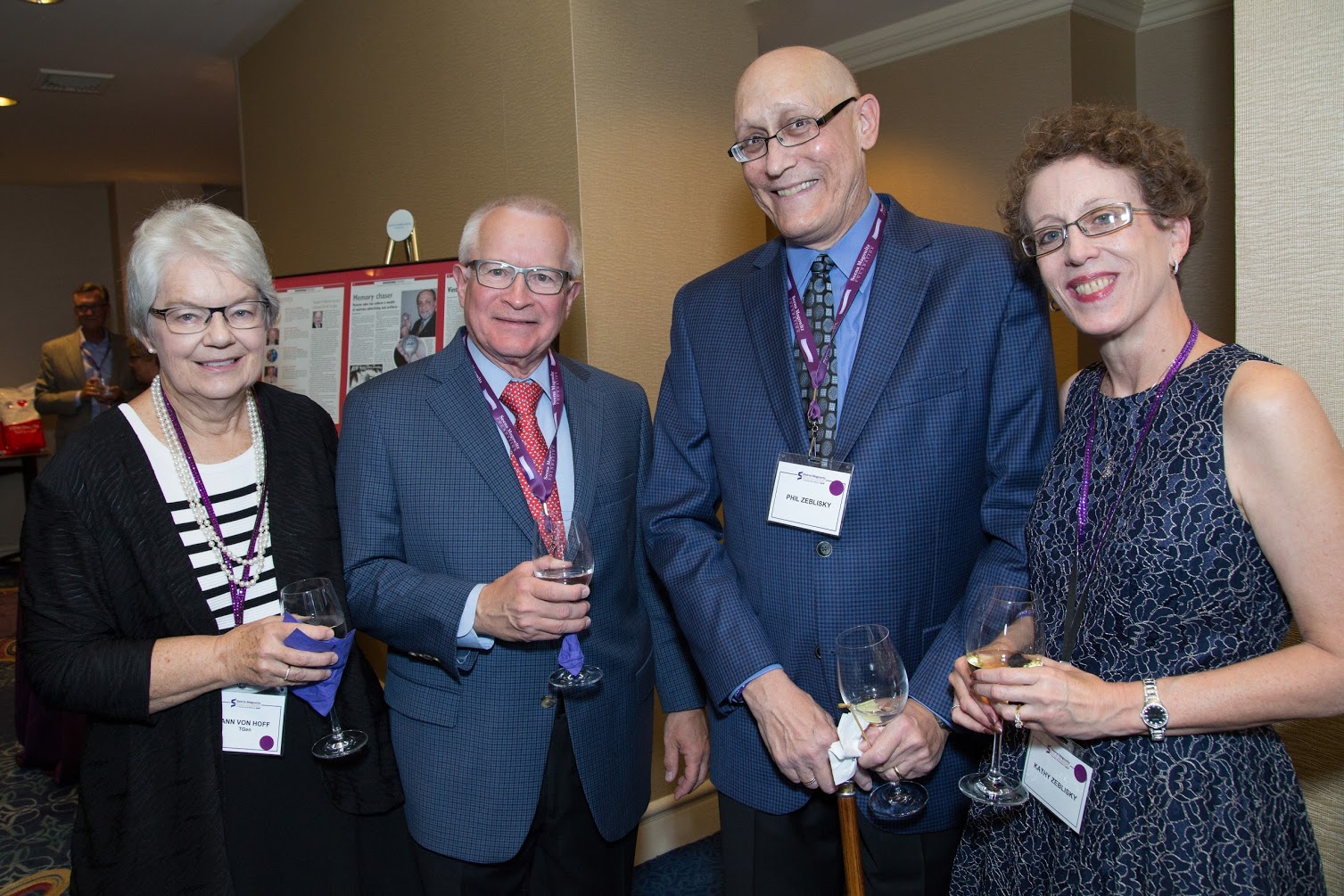Philip Zeblisky: Miracle Survivor

Von Hoff. Dr. Von Hoff, Phil Zeblsky, Kathy Zeblisky
Diagnosed: May 2014
Lost The Battle: January 2018
In May 2014, I was diagnosed with stage IV pancreatic adenocarcinoma. The first sign that there was something wrong came just five weeks earlier when I started to experience the symptoms of jaundice. This turned out to be caused by a small tumor at the head of my pancreas. Initially, the diagnosis was stage II cancer, and a Whipple procedure was attempted. During that initial surgery, a metastasis was identified on my liver, and the surgery was aborted.
The prognosis after surgery was not good. I was effectively told that I should get my affairs in order and, if I was lucky, perhaps I could be a 1-year survivor. Instead, with perseverance and a desire to beat this disease, I am now a 26-month survivor. I recently had the Whipple procedure, which was made possible by a clinical trial that effectively eliminated all metastasis and limited the cancer to a resectable tumor that was removed on February 11, 2016. The pathology on the Whipple specimen was an amazing R0.
The trial I chose utilized two chemotherapy drugs that have been approved for the treatment of pancreatic cancer (Gemcitebine and Abrxane) , and a third drug (Cisplatin) that is not currently approved for use in pancreatic cancer. The results were dramatic. After just six treatments, the tumor growth had been halted, and my CA 19-9 marker had fallen by over 70 percent. After the 15th and final treatment, the CT, MRI and PET scans revealed no detectable disease. My CA 19-9 at the end of chemotherapy was in the low teens and in December 2014, January 2015 and February 2015, my CA 19-9 stayed below 10 (35 is considered normal).
Unfortunately, this disease is pernicious, and it tends to return with great frequency. In April 2014, my CA 19-9 was again on the move up, and there was new evidence that the primary tumor was again active. For this reason, I restarted chemotherapy, first, with the clinical trial drugs, but then only with the approved drugs, as the third drug greatly exacerbated some neuropathy that I had before my cancer diagnosis. After four months of chemotherapy, I was again scanned, and there was no active cancer demonstrated in the pancreas or elsewhere within my body. I then started a maintenance chemotherapy medication, which I took with no change in status until January 2016.
The re-emergence of evidence that the primary tumor was active again came in January 2016. It now appeared that the cancer would “outsmart the chemotherapy,” so we began to consider other options.
Some of the lessons that I have learned:
– Do not give up. While the statistics are sometimes devastating to read, you are an individual person. Your outcome will be determined by how you approach the disease, not by how others who have gone before you have fared.
– Always consider a clinical trial. In addition to getting state of the art chemotherapy, I received care and follow-up that I do not believe I would have received if I were not in a clinical trial. After all, my first consult with my oncologist lasted over two hours. How often have you met with your doctor for over two hours? He answered all of my questions and most importantly, he gave me hope.
Since it was in the clinical trial researcher’s interest to get the data that they needed when they needed it, my follow-through became something that the research team drove. I was assigned a multidisciplinary team (oncology, nutritionist, mind body practitioner, exercise therapy and an incredible support group), all of whom were coordinated by a Nurse Navigator whose role it was to make sure that the system worked for me. The responsiveness was 24/7, and these team members became a part of my support group in a way that no group of individual practitioners ever had.
In addition to the good the clinical trial did for me, it is rewarding to know that I was able to aid in the advancement of the science. That was a real win – win.
– Think out of the box. Always consider options that others may consider to be “out of the box.” For me that option was surgery the second time, because in the past, the conventional wisdom was that “NOBODY does surgery if the diagnosis is stage IV.” Treatment is generally palliative in nature when stage IV is identified. But I chose a different path that we all hope will result in a second chance at survival.
